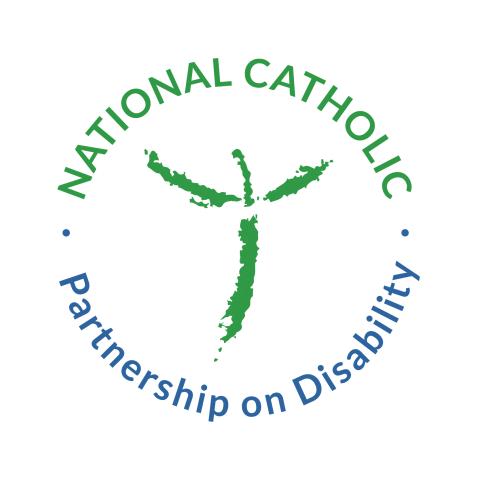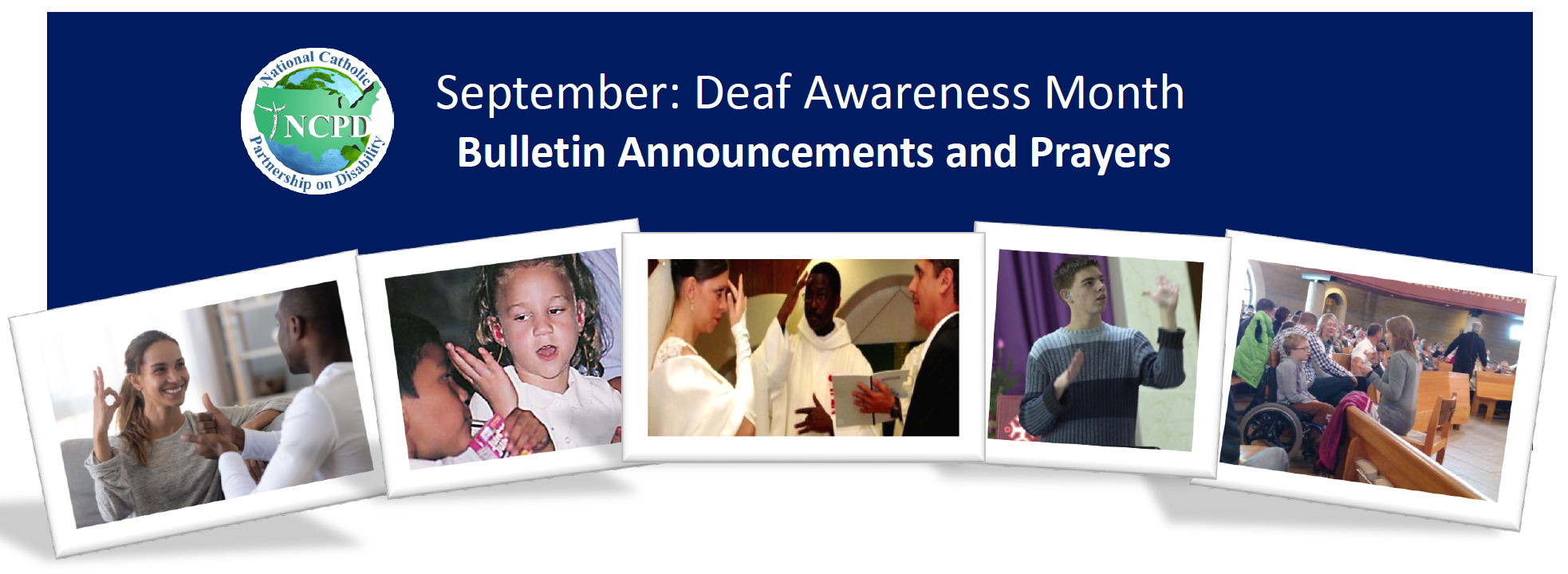Bulletin Insert:
“Dear friends, much has been done, thanks also to you, to increase acceptance, inclusion, encounter, and solidarity. But much remains to be done for the promotion of deaf people, overcoming the isolation of many families, and redeeming those who are still the subject of unacceptable discrimination. May my prayer and my blessing accompany you in this renewed effort. But you too, please, do not forget to
pray for me and for the whole Church, so that it may become an increasingly fraternal and hospitable community”.
Pope Francis, Message of the Holy Father for the 60th International Day of the Deaf, Sep. 28, 2018
Prayer of the Faithful
Pope Francis at the audience with Italian Federation of Associations for the Deaf, 2019
For Deaf children, their parents, and their families, that they may be given all of the love and support they need. We pray to the Lord: R/.
For parents of Deaf children, that as they go about their many caregiving tasks, that they may feel the presence of God in their lives. We pray to the Lord: R/.
For all Deaf families who like Mary have answered “Yes” to God’s invitation to care for one of their beloved sons or daughters. We pray to the Lord: R/.
For the Deaf Community, that they may be given God’s grace and protection to care for their families, neighbors, and the parish community. We pray to the Lord: R/.
For parish communities, that we welcome and affirm the participation of our Catholic Deaf brothers and sisters into our parish family. We pray to the Lord: R/.
Prayers in ASL (Video)
Hail Mary in ASL https://youtu.be/YiobzvJKxOw
Our Father IN ASL https://youtu.be/XYkvQps_QBE
Five Ways to Celebrate the Deaf Awareness Month
-
Provide ASL interpreters for Mass and promote it.
-
Include prayer intentions for the Deaf Community in Mass, especially on Sundays.
-
Distribute a pew card with the alphabet in ASL.
-
Support persons who are Hard of Hearing, providing listening devices.
-
Invite persons who are deaf, and their families to a social gathering at the end of Mass.
Saint Ludovico of Casoria
Ludovico was an Italian Franciscan friar, who dedicated his life to the vulnerable; established a dispensary for the poor, two schools for African children, an institute for the children of nobility, as well as an institution for orphans, the deaf, and the speechless, and other institutes for the blind, elderly, and for travelers.
To help continue these works of mercy, in 1859 he established the Gray Brothers, a religious community composed of men who formerly belonged to the Secular Franciscan Order. Three years later, he founded the Gray Sisters of St. Elizabeth for the same purpose.
His love for Christ moved him to great acts of charity.
Teresa de Cartagena: The Blessing of an Inner Conversation with God
She was born around 1425 to a wealthy, influential Castillian family. Teresa herself joined the Franciscans as a young woman, but she later transferred to the Cistercian Not long after she became a Cistercian, Teresa lost her hearing. We don’t know if it was sudden or gradual, or even if it was the result of an illness. We do know that her deafness as the source of great anguish for her at first. She felt trapped, imprisoned within her own mind, with limited ability to relate to other people. Teresa’s story, show us her natural perseverance, coupled with her growing reliance on the comfort and the grace of God.
Fact Sheet Information:
The National Catholic Office for the Deaf (NCOD) estimates there are about 5.4 million deaf or hard-of-hearing Catholics in the United States.
99% of all deaf people in the United States do not have an affiliation with any church. You could help change that statistic with a parish that welcomes and provides access to ensure that all the faithful are included.
The Pastoral definition of a Deaf Community: a community that is bound together by a signed language visual/gestural in nature (American Sign Language, ASL- in the U.S.), and a shared culture. This community includes but isn't exclusive to Deaf and hard of hearing adults, seniors, teens and children all of whom may have either Deaf or hearing family members who can also be considered part of this community. A small percentage of the Deaf community are deaf and blind, and they have additional communication needs. For Spanish speaking families, this also includes extended family with god-parents, uncles, aunties, and cousins.
National Catholic Partnership on Disability


